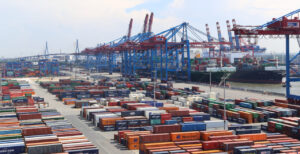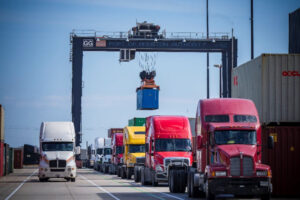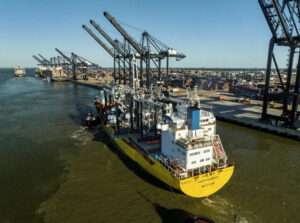The Digital Container Shipping Association (DCSA) and the European Shippers’ Council (ESC) have announced a joint collaboration to accelerate adoption of DCSA standards.
The associations will leverage DCSA’s open-source, vendor-neutral standards to help their members and other business partners make data exchange more timely, accurate and interoperable.
DCSA and the ESC will collaborate in three main ways.
Both organisations will invest time and resources in helping members adopt and implement DCSA standards to address their most pressing needs. This is likely to include the participation of ESC members in proof-of-concept trials and pilots, as well as ongoing education and training and the promotion of successes for best practice learning.
DCSA and the ESC will, secondly, share knowledge and contribute regularly to each other’s member forums.
Lastly, DCSA will gather input from ESC members to optimise existing standards and ensure future standards are developed in close alignment with the needs of shippers.
DCSA publishes and promotes digital standards that, when adopted by organisations throughout the supply chain, will enable interoperable IT solutions in container shipping.
DCSA standards provide a foundation for seamless, end-to-end data exchange that will not only ensure cargo is more visible across the container journey, but it will also make shipping services easier to use, more flexible, efficient, reliable and sustainable.
Standardising documents such as the bill of lading to enable paperless trade is also a key topic for the collaboration.
READ: DCSA enters final phase of eBL platform interoperability PoC
By working together, DCSA and the ESC will carry out structured, cross-member engagement activities to ensure DCSA standards meet shipper needs and facilitate adoption.
Commenting on the collaboration, Thomas Bagge, Chief Executive Officer for DCSA, said: “Global supply chains have been continuously optimised over decades; present-day technologies allow for the further improvement in customer experience. Unstandardised, paper-based processes for exchanging information to conduct business and keep goods moving should not be needed in the 21st century.
“The lack of digitalisation limits progress towards greater transparency and end-to-end, real-time cargo visibility. We can only bring about digital transformation together.”
The ESC represents the interests of around 100,000 manufacturers, retailers and wholesalers throughout Europe as users of transport, including maritime.
Godfried Smit, ESC Secretary General, said: “Our members need seamless data exchange across the supply chain to optimally orchestrate the movement of their goods. In the digital realm, this can only be achieved when communication is standards based.
“Collaboration with DCSA is one of the three pillars of our strategy going forward because its work on standards aligns with our own goals for transparent, stable and resilient supply chains.”









